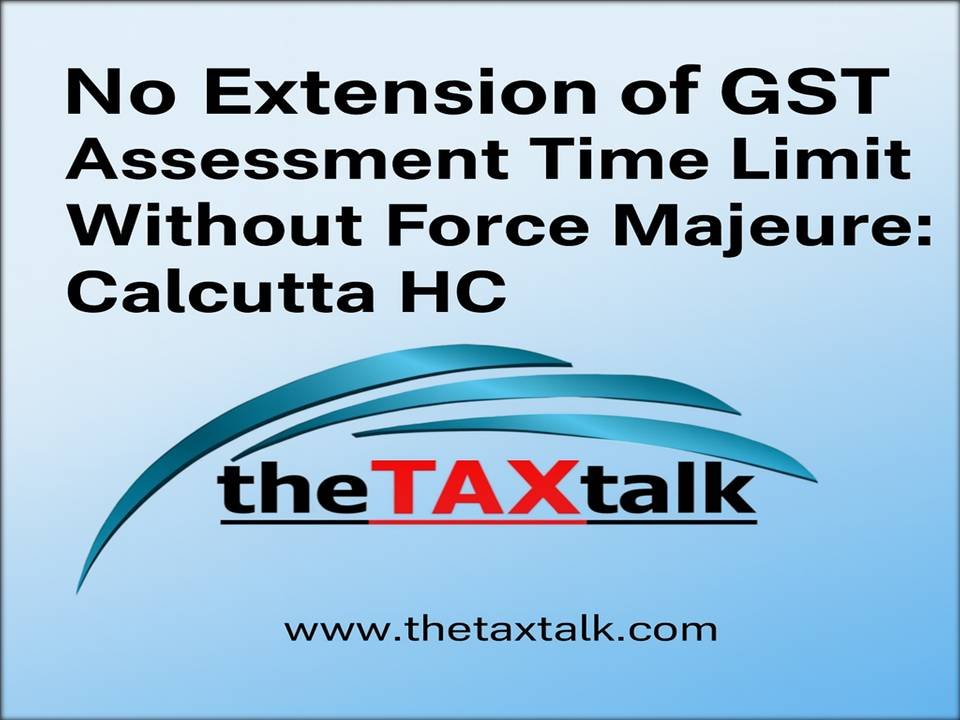![]()
No Extension of GST Assessment Time Limit Without Force Majeure: Calcutta HC
The Calcutta High Court has stayed a GST assessment order for being passed beyond the statutory limitation period under Section 73(10), holding that extension of time under Section 168A requires the existence of a “force majeure” situation.
Case Background
Period Covered: April 2019 – March 2020
Order Passed On: 28 August 2024
The assessee challenged the order under Section 73(9) of the CGST/WBGST Act on the following grounds:
1. Limitation under Section 73(10)
• The law prescribes a fixed time limit for passing an assessment order under Section 73(9).
• For FY 2019–20, this period had already expired.
2. Extension claimed under Section 168A
• The authorities extended the last date to 31 August 2024citing Section 168A.
• However, the assessee argued that this provision can only be invoked if there is a force majeure(unavoidable) circumstance – e.g., natural disaster, pandemic – preventing timely completion.
• As no such force majeure existed in 2024, the extension was invalid.
Court’s Observations
• Section 168Aallows extension of time limits in special circumstances beyond the control of the tax department.
• The assessee’s contention that no such situation existed for FY 2019–20 in 2024 was found to be prima facie arguable.
• Passing the order beyond the statutory deadline without valid extension would make it time-barred.
Interim Order
• Matter adjournedfor further hearing.
• Impugned order stayeduntil the next hearing date.
Ruling: Amar Nath Jaiswal vs. Assistant Commissioner of State Tax
[2025] 174 taxmann.com 188 (Calcutta HC) [23-04-2025]
Why This Matters for Businesses
This case highlights that:
1. GST assessment orders are bound by strict limitation periodsunder Section 73(10).
2. Extensions under Section 168A are not automatic— they require proof of “force majeure” conditions.
3. If the order is issued late without lawful extension, it can be challenged and stayed.
Practical Takeaways for Taxpayers
• Track limitation datesfor all pending GST notices – particularly for older years like 2017–18 to 2019–20.
• If an order is passed after the deadline, check the extension notificationand see if the grounds satisfy “force majeure.”
• File a writ petition promptlyin the High Court to seek stay, as the Calcutta HC has done in this case.
Final Word
The ruling sends a clear message: deadlines in GST law are not rubber bands that can be stretched without reason. The power to extend time under Section 168A is meant for exceptional events, not routine delays.
For taxpayers, this could mean a valuable defence against late assessment orders – provided they act in time.
The copy of the order is as under:


